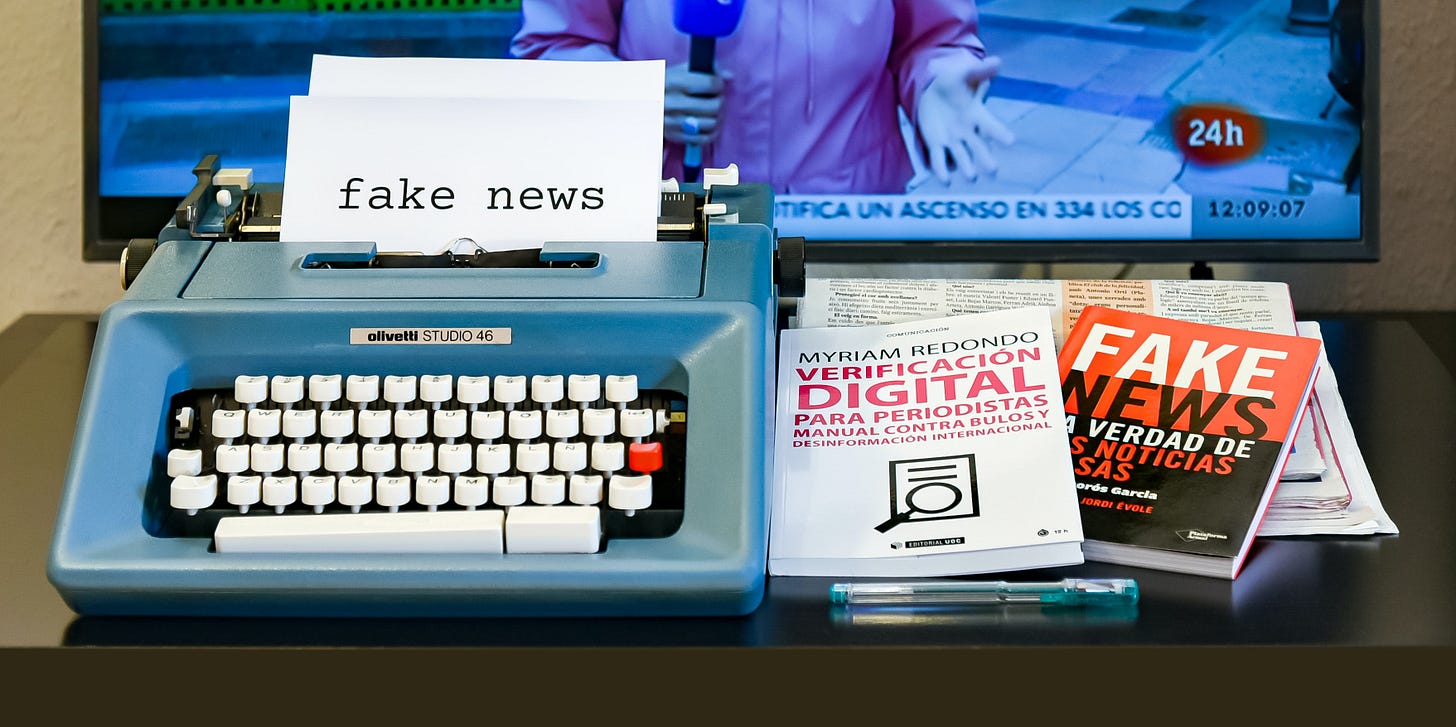Hoarding Power and Knowledge Pushes Us Towards Tyranny
Our system discourages power sharing while sensationalizing conflict and difference

This essay follows on from “Left and Right Turn Us Into Enemies,” which I wrote earlier this week. We’re still looking at the political-industrial complex and why our democracy and society are struggling.
Today, I’m recommending an article called Democracy and The Epistemic Commons by the Consilience Project. It’s a project by Daniel Schmachtenberger and some other folks, and they're trying to create a meta-news analysis of our political system. They analyze their news sources slowly and deliberatively to improve our sensemaking.
What are epistemic commons?
Epistemology is the theory of knowledge. It’s the investigation of what distinguishes a justified belief from an opinion. So, it’s how we know what’s backed up by facts and thoughtful consideration, not just opinion. Epistemic commons are areas of shared common knowledge that are open to everyone. Although “everyone” is questionable, as elites benefit from ensuring that not everyone can access knowledge. Instead, they keep it to themselves.
Democracy requires a really healthy epistemic public sphere. We need to be able to collectively make a distinction between justified beliefs and uninformed opinions. As we’re trying to live in a self-governing democracy, we can’t address serious issues without healthy epistemic commons. It means we’re able to maintain our legitimacy, understand what’s going on, and avoid people taking all the power away from us. If we don’t have a clue what’s happening, it makes it much easier for those in power to trick us into thinking things are okay, or that they’re doing their best for us.
Plato talked about a governance cycle. He believed that we go from aristocracy to tyranny and that democracy is a step along the path. Tyranny happens when people accumulate power, and when amassing and keeping power becomes more important than doing what’s right.
We’re on the road to tyranny: The people in power want to keep their power and accumulate more. It reminds me of the quote by Lord Acton: "Power tends to corrupt, and absolute power corrupts absolutely." And there’s another appropriate quote from Albert Maysles:
If we're going to take care of our democracy, we have to make sure it's actually democratic. The people in power need to be thoughtful about how they use their power. They need to make sure that they don't accumulate all that power and information. This is super important. Why? Because we all need accurate information to contribute to society and our collective decision-making. If democracy is self-governance at a large scale, we need epistemic commons at a large scale.
The institutions that help us maintain epistemic commons are failing. The media, government, universities, and the voting process are all dropping the ball right now. Some of this is because of narrative warfare. We're getting much better at spinning things, especially with our digital world and social media.
Our institutions are declining. People don't trust Congress or the government. The quality of the public sphere and our ability to discuss, deliberate, and think about things are eroding. We can't even agree on the basic realities of consequential issues.

As we distrust our institutions, we put a lot of attention on false or malicious arguments. Extremes are taking over, and they’re putting out misinformation and getting more attention than actual thoughtful consideration. People are listening to random Facebook posts, running with it, and ignoring the facts.
Even the inventor of the World Wide Web, Tim Berners-Lee, noted that fake news is an incredibly troubling issue. He said it’s something we need to solve if the Internet can truly “serve all of humanity.”
Fake news, disinformation, and misinformation happen when epistemic commons break down. Currently, we’re epistemically unhealthy. It’s no wonder people are feeling disenfranchised and hopeless when we can’t agree what’s true or important.
We can’t even identify the right issues to deal with. Instead, we're focusing on whatever those in power want us to focus on. The media are running the show, drawing attention to controversies and irrelevant issues. Incompetent leaders are in charge and they’re making decisions and acting on our behalf without any way of getting input from us.
One vote every two, four, or six years is not enough input in our system. It’s what Plato was worried about: We are concentrating more power. If we follow this path, our government will cease to represent us. They’ll just represent those who have the money and power to influence them. Democracy will cease to function.
Where’s the silver lining?
Amid all this dysfunction, some things are working. I want to share a project by an organization called More In Common. They’ve been digging into a lot of data to see how separate we really are. You can find out more about the perception gap here. What they're calling the “perception gap” is basically a poll, and you can take the quiz if you want. They help you think about how extreme the other side is.
What they discovered is that we think there are twice as many extreme voices on the other side. If you look at the data, we tend to perceive each other as being more extreme, evil, and scary. It’s like the Disney binary I talked about in my last essay.
Yes, it's scary that it’s happening, but it's encouraging. You’re probably wondering how on earth it’s encouraging.
It’s because we have more in common with each other than we ever would have thought.
More In Common has pretty interesting data: The more we follow the news and pay attention to the media, the more distorted our perception is of the other political party, the other side. People who don't watch the news at all have a pretty good reality check on what's going on.
People with extreme political views are very progressive activists or super devoted conservatives. They have much more distorted perceptions of the other political party. People who are politically disengaged or moderate or passive have a more realistic understanding of how people think.
While this can all feel hopeless, I want to show you an inverted graph from In This Together. It’s not a scientifically validated graph, but it's representative of something really important, something promising.
They believe 70% of the population is in the middle space, and they’re the “problem-solvers.” 70% of the population would rather solve a problem than stick to their political side. The other 30% are divided into two: A group of 15% on the far right and another 15% on the far left. In This Together call them the “warriors,” and these folks are going to fight for their side no matter what.
We tend to think about elections as the be-all and end-all. In that situation, parties only need 51% of the vote to get over the line and win. Politicians play to the people on the extremes so they can get the win. This is where the issue with binary comes in: That line is only true if we're choosing between two things. We wouldn’t need to encourage the extremes if
We’re trying to solve problems, and we have a totally different way of approaching this. Let’s take a representative sample of the population, say ten people. Three people will fight to the death and never change their minds. These are the warriors. But we also have the problem-solvers, and there are seven of them. The people who want to solve our problems far outnumber the people who would rather fight for their side.
So, what’s the problem?
Our system does not represent the problem-solvers. Instead, it concentrates on the extremes. Focusing on fighting reaps huge benefits for the media and our system. It brings more votes and money to our political system and more attention to the media.
To ensure our process represents the population, we need proper representation. By taking a representative sample of our population, we can give them a chance to exchange information and engage in a thoughtful process. We can get people to agree on things and real shifts can happen with deliberative conversation.
Thoughtfully engaging with diverse perspectives can generate solutions that create mutually agreeable outcomes. I know that might sound like pie in the sky, unicorns, and rainbow stuff, but it's real. That's what I'm going to talk to you about next week.
If you prefer to watch your content, here’s a video on the topic of this essay:
You can find more information about the work I do in conflict transformation on my website: http://www.omni-win.com
You can schedule a call with me here: https://calendly.com/duncanautrey
Don’t forget to check out the rest of my posts as I discuss how we can work together to ensure we all win.
If you’d like to see more of these weekly round-up posts, subscribe to Omni-Win Visions here on Substack:
It would also be great if you could subscribe to my YouTube channel, where you can watch more of my long-form content, authentic discussions, and weekly content:




